Table of Contents
Despite the fact that workout requires a lot of strength, time and energy, this is only the beginning of the path to your fitness goals. It is important not to forget about proper nutrition, and then you can completely change and improve your lifestyle. After all, nutrition is at least 50% of success, so it is important to remember about a balanced diet. In the previous article, we talked about what you can eat before workout, so today we will talk about nutrition after exercise.
What is the role of food after exercise?
This question can be answered very easily. After a workout, it is important to get all the nutrients needed to replenish energy, repair damaged muscle tissue and trigger protein synthesis. To better understand these processes, let’s take a look at each of them separately.
1. Replenishes energy and glycogen stores
During a workout, the body uses glycogen stores as an energy source. Glycogen is a long chain of glucose molecules that the body accumulates mainly in skeletal muscle and in the liver. Studies have shown that the body also uses 40% of its glycogen stores during physical activity. [1]
If the glycogen supply is exhausted, the body releases a stress hormone – cortisol, which has a strong catabolic effect. Indeed, cortisol “consumes” protein from muscle tissue and turns it into glucose. This process is called gluconeogenesis and as a result, glucose is produced from the amino acid supply in the liver, which leads to loss of muscle mass. [2]
That is why it is important to replenish glycogen stores after exercise. The best source of energy is quickly digestible carbohydrates with a high glycemic index. The glycemic index is a number indicating how quickly food increases blood sugar levels and, consequently, insulin levels.[2]
Insulin is a highly anabolic hormone that regulates blood sugar levels by transferring nutrients (such as glucose) to the muscles. As soon as all muscle cells are saturated with nutrients, the body begins to accumulate glucose in the form of fat. This means that on non-workout days, insulin stimulates the accumulation of unwanted fat, while immediately after exercise it boosts muscle growth and recovery. Thus, insulin provides replenishment of glycogen stores and the body’s readiness for further workouts. [2] [3]
In general, it is better to eat food with a low glycemic index (about 55 and below). But it is important to make an exception after training, and therefore the carbohydrates obtained should have a glycemic index of about 70 and above. A suitable source of carbohydrates after exercise is maltodextrin or dextrose. Both are carbohydrates that the body does not need to digest for a long time, and therefore they can quickly replenish glycogen stores. Learn more about the importance of carbohydrates after a workout in our article. [2] [3]
However, how many carbs should you take after exercise? Try to split the daily carbohydrate intake into half before and after exercise. For example, if your daily carbohydrate intake is 300 grams, take 150 grams of carbohydrates before and after exercise in a 1: 1 ratio, that is, 75 grams and after exercise. If you feel a lack of energy during exercise, you should take more carbohydrates before a workout. On the other hand, if during exercise you have a lot of energy and then you feel tired, you should take more carbohydrates after a workout. [3]
You might be interested in these products:
2. Restores damaged muscle tissue
During intense exercise, the muscles undergo minor damage and cracks that cause muscle pain after a workout. The body’s role is to repair these injuries, which also has a positive effect on muscle growth and strength. That is why we should not forget about the nutrients that boost the regeneration process, and which will help to fully recover and be ready for the next workout in the gym. [3]
The most important nutritional supplement after exercise for regeneration and muscle growth is whey protein. It is even better than protein derived from food for several reasons [3]:
- it is a very quickly digestible source of protein compared to other sources
- contains a rich amino acid profile and a large proportion of BCAA
- contains only minimum fat
- to drink a protein shake immediately after a workout is convenient, quick and practical
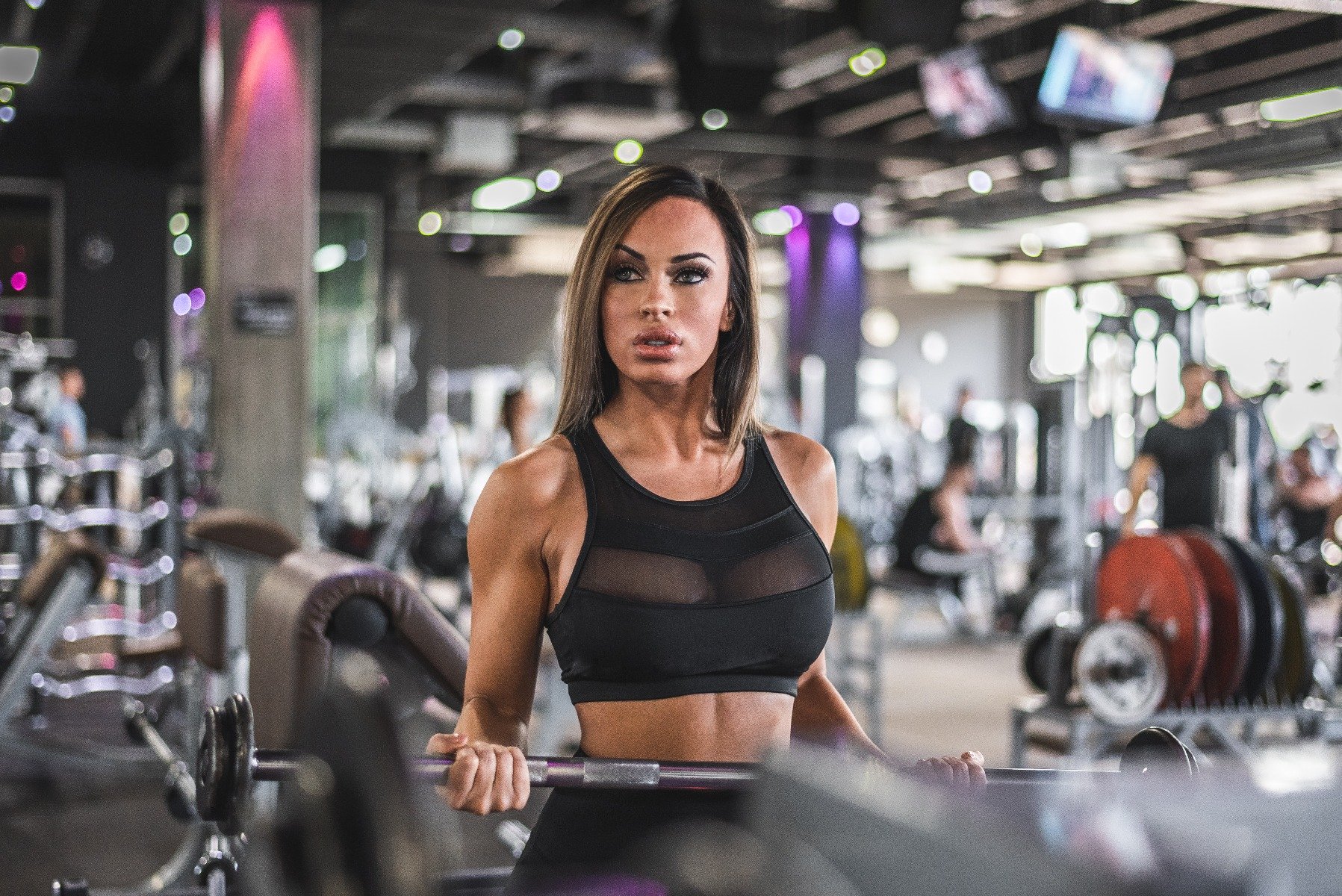
If you consume a serving of whey protein after exercise, then you can be sure that your muscles will be grateful afterwards. Therefore, we recommend taking about 0.3 – 0.5 g of whey protein per kilogram of weight. Learn more about whey protein dosage in our article. [4] [5]
The next dietary supplement that promotes the regeneration and rapid recovery of damaged muscle tissue is glutamine. At the same time, this amino acid strengthens the immune function of the body and the absorption of carbohydrates. Why is glutamine important after exercise? During physical activity, the level of glutamine in plasma decreases, because of the increased need of glutamine in the liver, kidneys, intestines and immune system.
By taking glutamine, you replenish the missing stores of this amino acid and allow the immune system to function properly and other processes that depend on glutamine. [6] Glutamine support for the immune system subsequently protects against diseases that can knock you out of your training routine and destroy your progress.
In addition, research confirms that consuming glutamine increases carb stores and glycogen. Simply put, glutamine along with carbohydrates and whey protein can help you increase your body’s ability to replenish muscle nutrients. This in turn leads to a rapid recovery, as well as to improved athletic performance. So, take at least 10 g of glutamine after exercise and one more serving during the day. [3] [7]
3. Increases muscle protein synthesis
The last and most important function of food after exercise is an increase in protein synthesis. The mTOR protein acts as a trigger for protein synthesis in the body and, therefore, for muscle growth. At the same time, MTOR can activate factors such as increased production of amino acids, especially leucine, in combination with exercise and insulin. [8]
BCAA, three branched-chain amino acids — leucine, isoleucine, and valine — should be included in your post-workout shake. Increased leucine concentration can activate mTOR and thereby affect the course of protein synthesis.
Thus, most BCAA supplements provide an increase in the proportion of leucine, usually in a 2: 1: 1 ratio. However, it is important to take at least 2.5 g of leucine (or 5 g of BCAA in a ratio of 2: 1: 1) after a workout. Of course, some amounts of BCAA are also found in whey protein. However, this is usually not enough to obtain the dose of leucine required to trigger protein synthesis. [3]
To sum up, your meal after exercise should include [3]:
- 25% of daily carbohydrate intake from maltodextrin or dextrose
- whey protein (0.3 – 0.5 g per kg weight)
- 10 g of glutamine
- not less than 5 g BCAA in 2: 1: 1 ratio
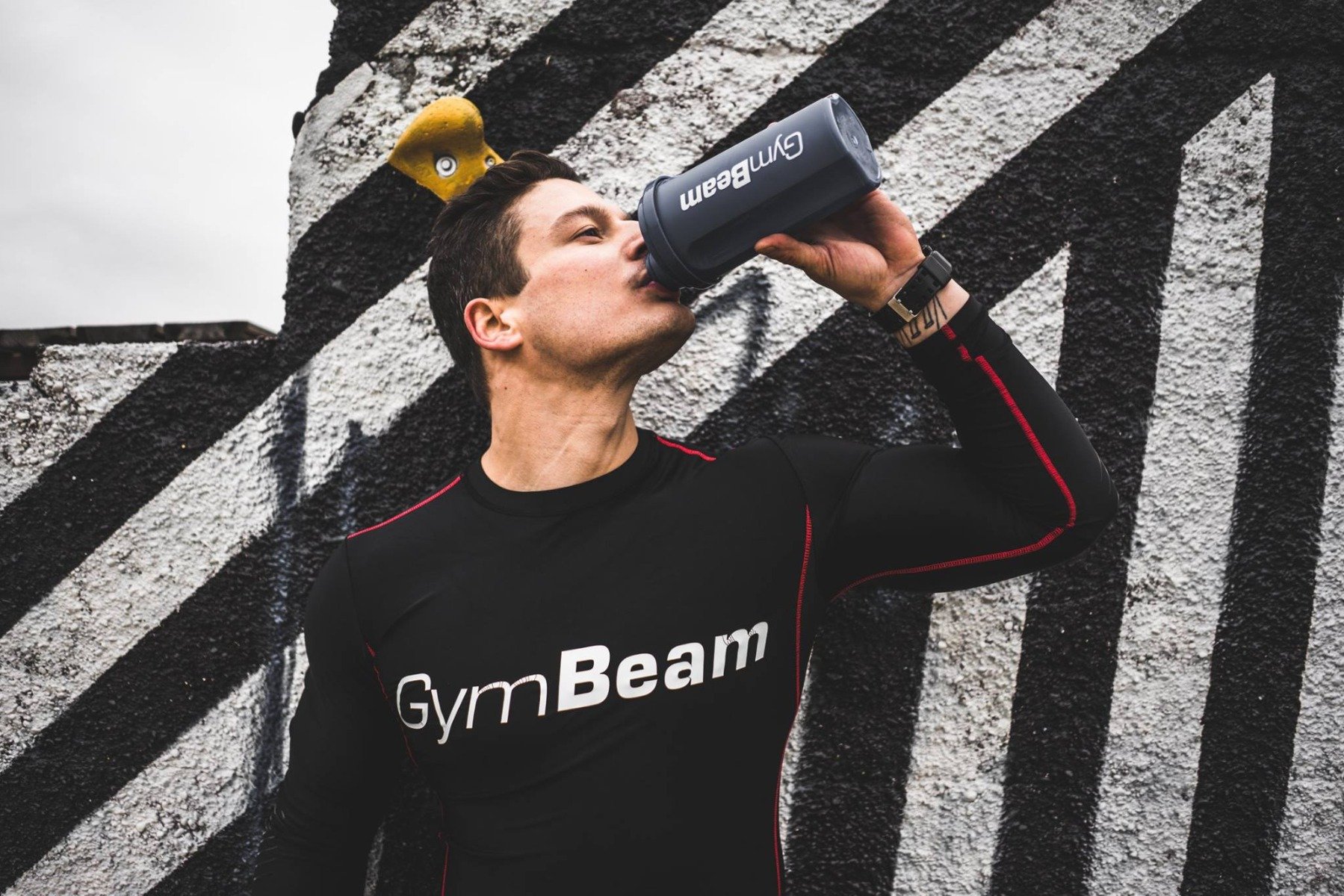
Nutritional supplements vs. food
You can get the above mentioned nutrients in the form of nutritional supplements or traditional food. However, nutritional supplements have several advantages [9]:
- quickly absorbed
- easy to digest
- fill the exact amount of nutrients
- practical and convenient
However, if you decide to choose food, the source of post-workout carbohydrates can be [4] [10]:
- sweet potato
- quinoa
- fruits – pineapple, berries, banana, kiwi
- rice
- oatmeal
- pasta
- dark green vegetables
- wholemeal bread
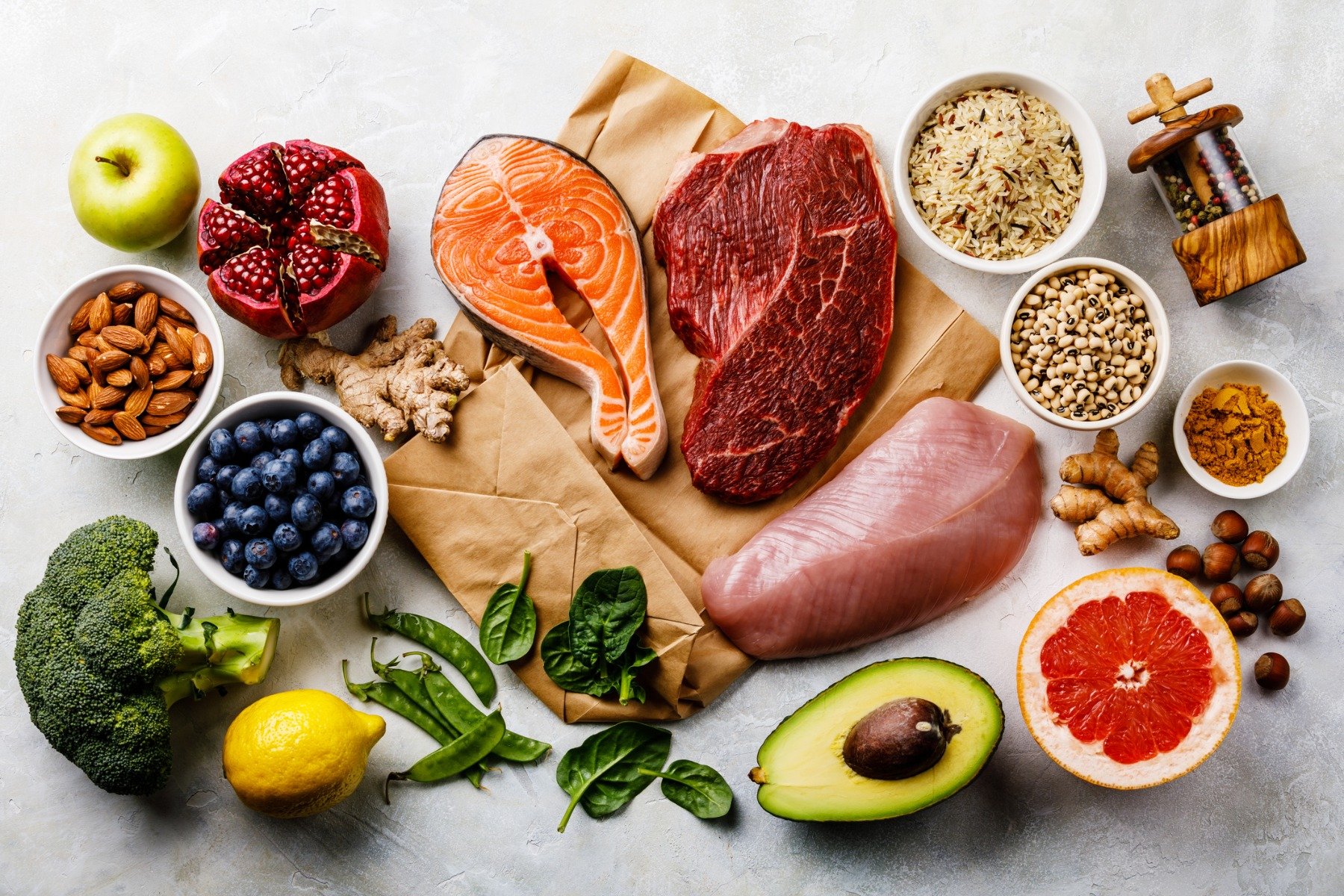
Sources of protein and BCAA, which are necessary for muscle regeneration, are [4] [10]:
- eggs
- greek yogurt
- cottage cheese
- salmon
- chicken breast
- protein bars
- tuna
- tofu
5 best post-workout meals
We have prepared for you recipes of 5 different dishes, thanks to which you restore the optimal stores of protein, carbohydrates and amino acids after a workout.
1. Chicken in Barbecue Sauce with Quinoa and Pineapple Salad
This fitness recipe contains protein-rich ingredients. Simply dice the chicken breast and leave it to marinate in Zero calorie BBQ sauce for a few hours. Then fry the chicken with a little olive oil. Prepare a quinoa salad by mixing boiled quinoa with pineapple, spinach and cashew nuts. This tasty dish will provide the necessary nutrients after exercise and saturate you for longer time.
2. Protein Pizza
Protein pizza is a good post-workout meal for all lovers of Italian cuisine. Protein pizza, however, differs from the classic pizza in its nutritional composition, as it contains a large amount of protein. In addition, if you add healthy ingredients such as basil, ham, mozzarella and sweetcorn, then this pizza can be considered super healthy and balanced dish.
3. Savoury Pancakes with Spinach, Salmon and Fried Eggs
Make savoury protein pancakes with whole-wheat flour, eggs, milk and spices. Also add salmon and fried eggs, and thus you will get the large amount of protein and healthy fats. Spinach contains calcium, magnesium and zinc, and garlic strengthens the immune system. In addition, it is very tasty.
4.Sweet Potatoes with Curry Sauce, Broccoli and Cashew Nuts
There are thousands ways to cook sweet potatoes. We have chosen a fitness recipe for vegetarians. All you need is sweet potatoes, broccoli, red peppers, celery stalks, cashew nuts and eggs. The preparation is very simple, just boil sweet potatoes in salted water and then add boiled broccoli, peppers, celery and cashews. Season with coriander, cayenne pepper and our Zero calorie Curry Sauce. Enjoy your meal! [11]

5.Avocado and Feta Sandwich
If you want to cook something quickly, this recipe is just for you. Add avocado, feta cheese, a little of lemon juice and pepper into a small bowl. Then mash the ingredients with a fork. Spread the paste on a slice of whole grain bread and cover it with another slice. Grill in a sandwich maker for few minutes and serve. [11] [12]
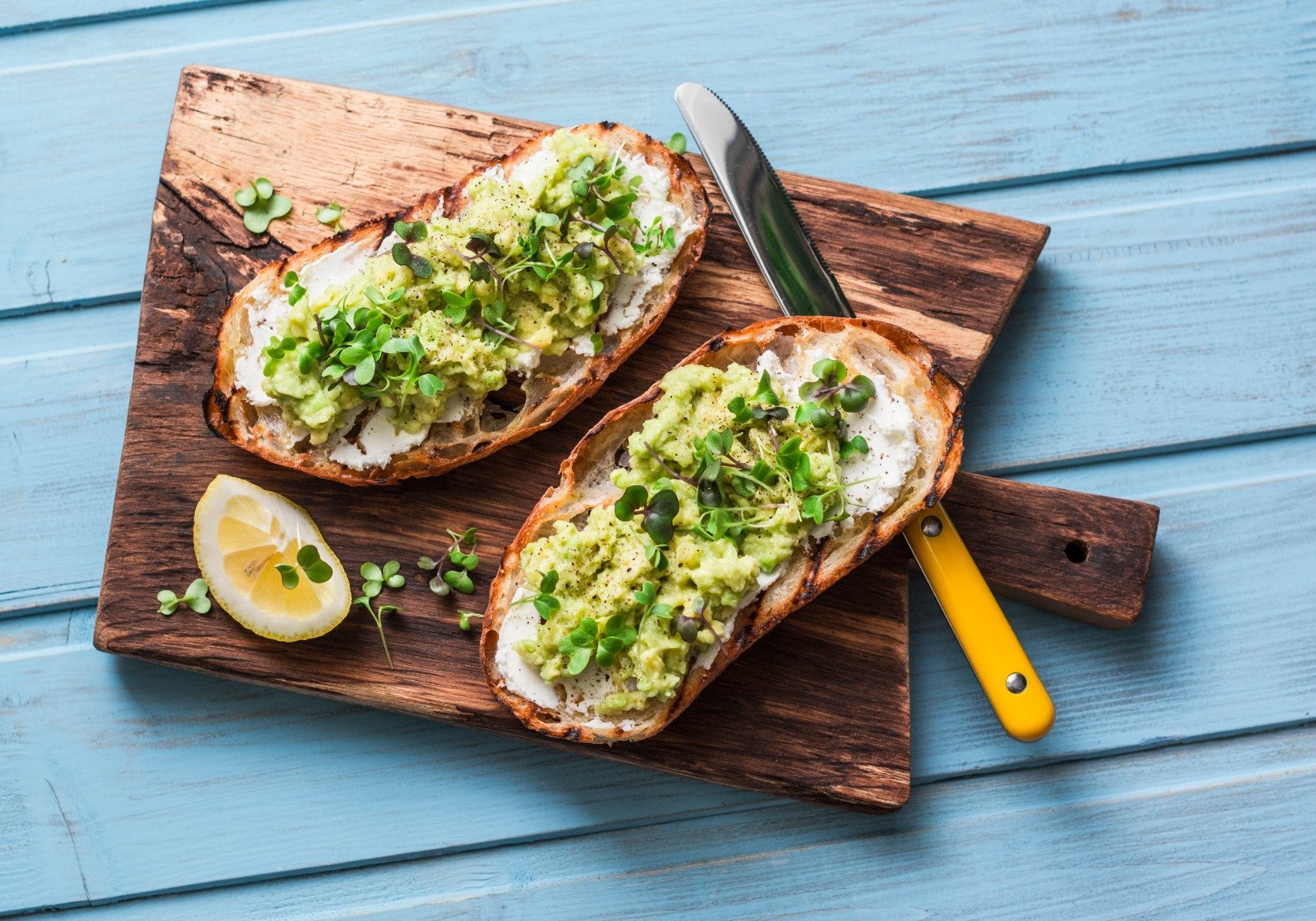
We hope that we have helped you with the choice of meals or nutritional supplements after a workout. Tell us what do you usually eat after exercise and what kind of nutritional supplements you add to your post-workout drink. If you find this article useful and you liked it, share it with your friends.
[1] Robergs RA, Pearson DR, Costill DL, Fink WJ, Pascoe DD, Benedict MA, Lambert CP, Zachweija JJ - Muscle glycogenolysis during differing intensities of weight-resistance exercise. – https://www.ncbi.nlm.nih.gov/pubmed/2055849
[2] Jim Brewster - Post workout carbs: Best choices to grow and recover! – https://www.bodybuilding.com/content/post-workout-carbs.html
[3] Hunter Labrada - Guide to post workout nutrition and supplementation – https://www.bodybuilding.com/content/hunter-labradas-guide-to-post-workout-nutrition-and-supplementation.html
[4] Arlene Semeco - Post workout nutrition: What to eat after a workout – https://www.healthline.com/nutrition/eat-after-workout#section2
[5] Kerksick C, Harvey T, Stout J, Campbell B, Willborn C? Kreider R? Kalman D, Ziegenfuss T, Lopez H, Landis J, Ivy JL, Antonio J - International Society of Sports Nutrition position stand: nutrient timing. – https://www.ncbi.nlm.nih.gov/pubmed/18834505
[6] Calder PC, Yaqoob P - Glutamine and the immune system. – https://www.ncbi.nlm.nih.gov/pubmed/10582122
[7] Bowtell JL, Gelly K, Jackman ML, Patel A, Simeoni M, Rennie MJ - Effect of oral glutamine on whole body carbohydrate storage during recovery from exhaustive exercise. – https://www.ncbi.nlm.nih.gov/pubmed/10368336
[8] Wang Y, Proud CG - The mTOR pathway in the control of protein synthesis. – https://www.ncbi.nlm.nih.gov/pubmed/16990457
[9] John Berardi - The importance of post workout nutrition! – https://www.bodybuilding.com/content/the-importance-of-post-workout-nutrition.html
[10] Shawn Radcliffe - What are the best foods to eat after an intense workout? – https://www.healthline.com/health-news/what-are-the-best-foods-to-eat-after-an-intense-workout
[11] The 43 best post-workout meals – https://draxe.com/recipe/post-workout-meals/
[12] Matthew Kasey, Chris Mohr - 9 post workout foods that will help you build muscle and recover faster – https://www.menshealth.com/nutrition/a19546508/best-post-workout-foods/

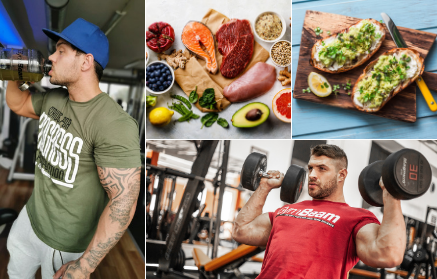
Add a comment